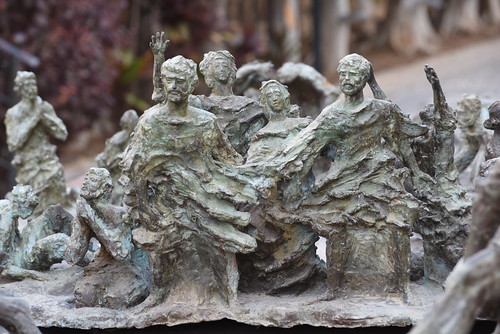OLDaily
by Stephen Downes
Nov 11, 2016
Presentation
Openness
Stephen Downes, Nov 11, 2016,
Regional Forum on ICTs in Higher Education of the Arab States, Beirut, Lebanon
Short presentation at a panel discussing aspects of openness in higher education. I am the first speaker in the panel; the other participants speak, and then there is a fairly good discussion following. I offered the argument that we should think of learning resources as the language we use to communicate and educate, and like words in a language, we need to be able to freely use them.
[Slides]
AAEEBL ePortfolio Review
2016/11/11
The Association for Authentic, Experiential, and Evidence-Based Learning (AAEEBL) is announcing the inaugural issue of the AAEEBL ePortfolio Review. They write, "Designed to provide space for emerging thinking about ePortfolio research and practice, as well as a publication opportunity for those working in and with ePortfolio, the AePR focuses on timely, important topics written by leaders in the field" The first issue has been released as a single 74 page PDF.
Educational Technology & Education Conferences #36, January to June 2017
Clayton R. Wright,
Stephen's Web,
2016/11/11
Clayton R. Wright has once again published his excellent conference list. He writes, "Some of these events have intriguing themes to guide them, such as 'Changing to Learn, Learning to Change', 'The Politics of Open', 'Respect the Past, Lead the Present, Secure the Future', 'Knowledge Is the Oil of the Future', and 'Democratization and Participation – People’s Roles in the Digital World'.
"For May and June 2017, in particular, I was unable to find dates, locations, and URLs for a number of events. I did send out 300+ e-mails to obtain missing information, but few responded. This is becoming normal now - people generally don't respond, though some do ask for a copy of the list when it is complete. Further, some conference websites do not provide an e-mail address that I can use to contact the organizer of an event. Bottom line: Yes, there are a number of events I unable to find basic information for; thus, I can't publish information I don't have. As usual, the next or 37th edition of this list will provide an updated listing for June 2017."
There is no such thing as western civilisation
Kwame Anthony Appiah,
The Guardian,
2016/11/11
This is a terrific article and one that should force us to re-examine the 'traditions' we seek to pass on through the process of education. "How have we managed to tell ourselves that we are rightful inheritors of Plato, Aquinas, and Kant, when the stuff of our existence is more Beyoncé and Burger King?" asks Kwame Anthony Appiah. Against perhaps the prevailing wind of our times, he argues, "We live with seven billion fellow humans on a small, warming planet. The cosmopolitan impulse that draws on our common humanity is no longer a luxury; it has become a necessity." Quoting Terence, he says “Homo sum, humani nihil a me alienum puto.” “I am human, I think nothing human alien to me.”
When Nerve Cells Detect Patterns for Acquired Knowledge
Mihai A. Petrovici, Johannes Bill, Ilja Bytschok, Johannes Schemmel, Karlheinz Meier,
Heidelberg University, arXiv,
2016/11/11
Researchers are coming closer to describing exactly how knowledge is stored as patterns of connectivity in a neural network. They create from a framework "by implementing Markov chain Monte Carlo (MCMC) sampling in spiking networks of abstract model neurons." This shows how a neuron can draw an inference from a subset of the data available - a 'partial representation' - selecting from various possible interpretations. It's like: we see stripes in the jungle, is it shadows or a tiger, should we run? and we make a snap decision using this method by sampling the data. The full paper is very heavy in mathematics and neural network theory. The press release is a useful summary. Via Matthias Melcher.
Not Everyone’s Hero
Carl Straumsheim,
Inside Higher Ed,
2016/11/11
Short article mostly intended to expose and denounce Course Hero, an online learning platform that serves essentially as a homework and assignment help site. It focuses on unreliable assignments authored by users in Kenya, "contract cheating under the guise of student support," and of course accusations of copyright violations after tests and assignments were found posted on the site. The article blames sites like this for forcing universities to shift away from assignments for assessment and toward a reliance on a small number of midterms and finals - a shift that was evident even when I was a student well before the popularity of the internet. Giving students assignments to take away and solve all by themselves is the opposite of "wrestling around with problems" and if this were what universities really intended they would adapt their pedagogy accordingly. Instead, they blame sites like this.
This newsletter is sent only at the request of subscribers. If you would like to unsubscribe, Click here.
Know a friend who might enjoy this newsletter? Feel free to forward OLDaily to your colleagues. If you received this issue from a friend and would like a free subscription of your own, you can join our mailing list. Click here to subscribe.
